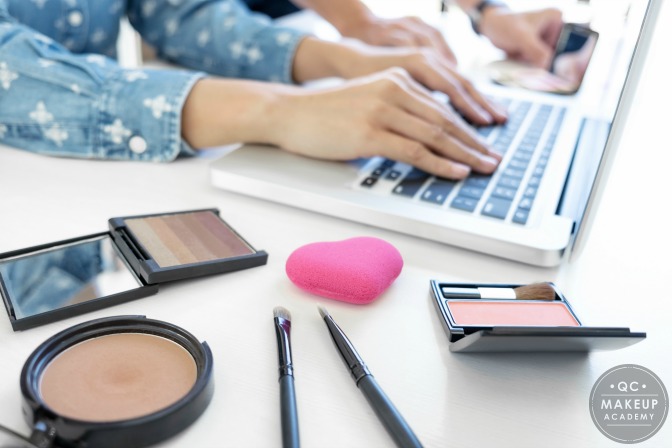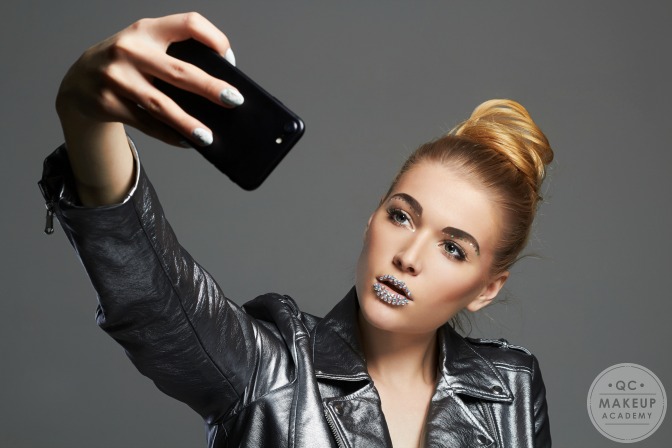If you’re thinking about starting a makeup business, it’s probably become the basis of your livelihood. There are some key components that you must absolutely need to succeed— like having a talent for makeup, for instance. But there are some traps that artists everywhere commonly fall prey to. These traps don’t just make it inconvenient for business growth, but in some cases can actually kill your makeup business!
You think we’re being dramatic, but the professional makeup industry is cutthroat these days. You have to stay competitive or risk getting lost in the shuffle. Sounds scary, right? Read on to find out if you’re committing any of these deadly business sins!
1. Running your business out of Craigslist
Yes, an online presence is required nowadays, but please take some pride in your artistry! We’ve seen fresh-faced artists advertise themselves solely on Craigslist or other online marketplaces—with no links to a personal website. To make matters worse, these types of ads are often accompanied by low-quality photos or none at all!

It’s important to have a central hub for you to direct all inquiries. Purchasing an easy-to-remember website domain (ex. Your name + makeup) and hiring a graphic designer to create a logo can boost your website and brand’s overall feel. This unique and recognizable branding can also help to distinguish you from the competition!
Get creative with your website! Make the interface sleek yet reflective of your personality and makeup style. Don’t get all caught up in the aesthetics though—use the site to provide potential clients with your bio, contact information, social media links, and to showcase your portfolio. If you’re really savvy, you can start your own makeup blog and regularly update it. You’d be surprised by how much traction your business can get when you upload regular content!
2. Social media blackout
It almost seems impossible, but there are artists who simply aren’t using social media to their advantage. Tossing in a few makeup looks here and there on your personal channels are to be expected, but please don’t confuse personal accounts to be appropriate in a professional setting!
You have to find a way to deliver content directly to your target market. Through social media, you can encourage people to try services they may not have otherwise considered or know about. They may just be browsing casually on their phones, but if you catch their eye, you’re in!
It can be discouraging when the initial social media fanfare dies down and your traffic slows to a crawl. Don’t lose your excitement and just post a lonely #makeupoftheday! Make sure you take photos of your clients, post them, and link your clients’ personal handles to increase the shareability and versatility of your posts.

Showing off a diversity of clients with different skin tones and face shapes is key. . If you’re active on social media, creating a range of posts will collect naturally if you take cues from your posts’ engagement levels. You may also want to delve into lifestyle posts, YouTube videos, how-to makeup tutorials, and blog posts.
Related articles:
- How Makeup Artist Training Will Help Your YouTube Channel
- The Makeup Artist’s Guide to Rocking at Instagram
- Social Media for the Freelance Makeup Artist
- 5 Creative Social Media Engagement Posts
3. Using your phone and Instagram account to build a portfolio
On the other end of the spectrum, it’s also not advisable to dedicate all your time to building a social media following. Remember, makeup isn’t a digital business. It’s wise to use social media to your advantage, but ultimately your income will come from your ability to work and network in real-life situations. Instagram is amazing for spreading the word about your skills via eye-catching posts, but they can’t replace a real, high-quality portfolio!
If you’ve had any previous training or education in makeup, you’ve probably taken some professional-quality photos for your instructors and tutors. Having one of their professional eyes look over your work can give you great insight into what an industry expert is looking for in a portfolio.

Even if you don’t have the same resources as when you were in school, you must get a real camera! Yeah, yeah, yeah—cell phone cameras are starting to give cheaper digital cameras a run for their money these days… but organizing a professional shoot with an experienced photographer/editor shows off your drive and professionalism. Not only will your photos look fantastic, but they will accurately flaunt what you can do, outside the realm of filter magic.
4. Being catty
If you’re serious about being a professional makeup artist, you have to act like a professional! Only a handful of beauty gurus and indie makeup companies who’ve been trapped in messy disputes have survived! Beyond the risk of destroying your reputation, participating in catty makeup community drama is also bad karma!
Yes, the other artists in your area are your direct competition, but having allies can be beneficial to your business! Makeup artists team up all the time to collaborate on large projects—like the local theater production or a charity fashion show.
You can even extend this sense of comradery to other professionals in different industries. Just because they aren’t makeup artists or companies doesn’t mean they aren’t worth networking with! Think about the niche your business caters to. If you’re specializing in bridal makeup, it could be amazing to connect with a wedding planner in your area to share clients. Other local businesses including spas, salons, and boutiques may be worth extending a friendly introduction to!
